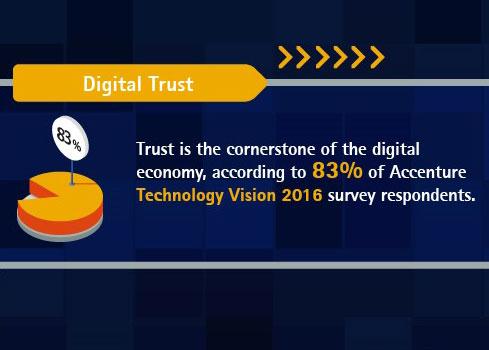The Accenture Technology Vision 2016 report examines five ways that adept digital companies are putting people first. Investing in the development and management of people will be necessary to navigate the tumultuous digital economy, according to Accenture.


8 Ways To Monetize Data
8 Ways To Monetize Data (Click image for larger view and slideshow.)
People are the key to unlocking business success in an era of rapid technological disruption, according to global consulting firm Accenture. Taken at face value, this is a rather obvious assertion. Companies understand that technology relies upon people. The alleged no-poaching pact between leading Silicon Valley companies is a testament to that.
But Accenture, in its "Technology Vision 2016" report released today, looked at the relation between technology and people beyond the level of dependency. It explored how companies can thrive in an era of accelerating technology change by fostering a people-first culture.
Counterintuitive though it may seem at a time when automation is on the rise, investing in the development and management of people will be necessary to navigate the tumultuous digital economy, according to Accenture.
[What's ahead for your career? Read 10 Best Tech Jobs for 2016.]
"High performers of the future won't merely consume more technology," said Paul Daugherty, Accenture's chief technology officer, in the report. "They will enable their people to accomplish more with technology."
Digital culture and talent will be what sets companies apart, Daugherty wrote.
Technology cannot be avoided. The digital economy accounted for 22% of the world economy in 2015, according to Accenture. The firm foresees that number rising to 25% by 2020, up from 15% in 2005.
This is a trend that has companies worried. In a survey of 3,100 IT and business executives, on which the report is based, Accenture found that 86% of respondents said they expect the pace of technological change will increase either rapidly or at an unprecedented rate over the next three years. Paralysis is the consequence of change that Accenture sees among many businesses, as companies struggle to understand how to adapt to a world in flux.
To succeed in this world, Accenture said that enterprises need to be built for change, for data, for embracing disruption, and for avoiding digital risks.
To be built for change, companies must ensure that their workers are learning new skills and can adapt to new roles. Among survey respondents, 37% said workforce training is significantly more important now than it was three years ago.
To be driven by data, companies have to make it widely available and actionable among business units, instead of taking direction based on tradition or on unsupported executive whims.
Embracing disruption means looking at change as an opportunity for ongoing improvement rather than as a threat. Accenture cited Samsung's C-Lab program, a competition in which employees pitch ideas for potential incubation, as an example of how companies can align their operations to embrace change.
As for avoiding digital risk, it isn't merely a matter of online security. It's about focusing on trust and ethical behavior from the outset.
Based on its survey results, Accenture identified five trends it deems essential for people-first companies:
1. Intelligent automation. This is an area of growing interest among companies across a variety of industries. Some 70% of survey respondents said they're investing more in artificial intelligence (AI) today than they did in 2013, according to the report. Accenture pointed to a Siemens manufacturing plant that has been automated to the point that some of its production lines can run for weeks without supervision. Yet, people haven't been banished by this automation. Rather, they have different roles than before, focused on programming, monitoring, and maintenance, the report explained.
2. Creating a liquid workforce. Not to be mistaken for a workforce that can be liquidated, a liquid workforce is one that can adapt to change and incorporate new skills. "By making training a core competency, organizations can actively develop the skills that will set them apart from competitors," the report said.
3. Platform building. Given the success of platform companies, including Amazon, Apple, Facebook, Google, and Microsoft, it's unsurprising that other companies would want a platform of their own. But the extent of interest in developing a platform business is startling: 81% of Accenture's survey respondents anticipated that platform-based business models will become part of their organizations' growth strategy within three years.
4. Planning for the unpredictable. Successful enterprises have become accustomed to digital disruption over the past few years. They've developed a sense of balance amid seismic shifts. Some 82% of survey respondents acknowledged that industry boundaries are blurring. Accenture said it sees the digital platform investments being made by people-first enterprises as a way to shape disruption.
5. Committing to trust. Among survey respondents, 83% said trust is essential in the digital economy, and 82% said lack of security and ethical controls could keep them from working with digital platforms from other companies. Accenture pointed to Apple -- and its insistence in court that it cannot unlock customer data on the iPhone -- as an example of how customer trust can be maintained.
Every business is a digital business, Accenture concluded. The challenge lies in being a thriving digital business. Putting people first probably isn't a bad way to meet that challenge.
About the Author(s)
You May Also Like







